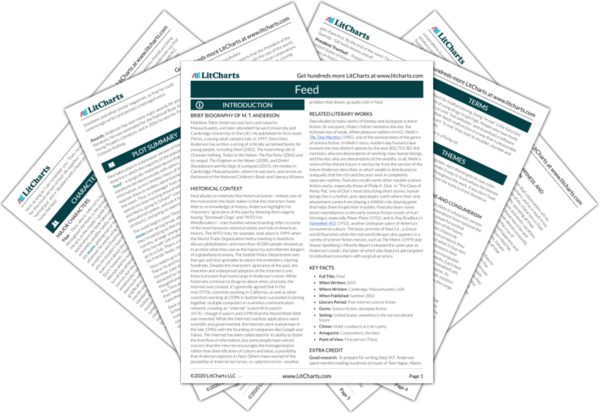Violet’s father alludes to H.G. Wells’s
The Time Machine, in which upper-class humans evolve into a weak and foolish pleasure-seeking species, the eloi (while the working class evolves into fearsome morlocks). But even though Violet’s father has a point (namely, that Titus and his friends are shallow and selfish), there’s nothing constructive about his rage—he just wants someone to blame for Violet’s sickness. Indeed, the passage closes with Violet’s father offering the same ineffectual words—“I’m sorry”—that he’d previously attacked Titus for using.
